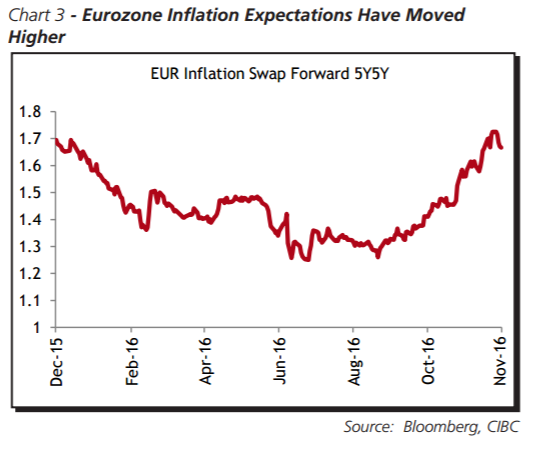
The ECB announced a coming reduction in its monthly asset purchases, but tried not say it was “tapering” by combining two announcements in one. European monetary policymakers retained their existing €80 bn per month in assets purchases that was due to end after March, but tacked on a further €60 bn in monthly buying through the end of December 2017, or longer if necessary.
The reduction in the pace of purchases is more of a reflection of the strains in some bond markets than it is of the ECB’s view that the economy requires less stimulus. President Draghi highlighted low core inflation, even though the central bank’s forecast shows headline inflation reaching target in 2019. The central bank appeared keen on taking the spotlight off of headline which is being buoyed by higher energy prices. The central bank is likely also trying to push back against the post-Trump move in bond markets, which has seen both interest rates and inflation expectations rebound sharply (Chart 3).
Ongoing balance sheet expansion, coupled with political risks in a number of Eurozone countries should keep the euro contained in the first quarter of next year.
Thereafter, a brighter outlook for both the economy and political risks should begin to see the currency gain ground against a US dollar that’s best days are behind it. Look for a disappointing result for the populist Front National party in France’s upcoming elections to be a turning point for political risk in the region.
Copyright © 2016 CIBC, eFXnews™Original Article

